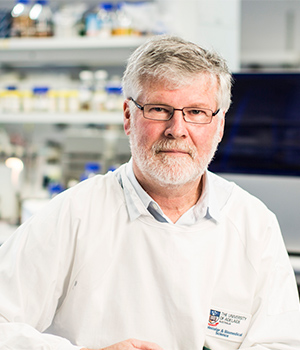Investment drives pneumococcal vaccine towards human trials
Health & Medical
Clinical trials of an Australian vaccine for all 98 pneumococcal strains are on track to commence inside two years.

Sign up to receive notifications about new stories in this category.
Thank you for subscribing to story notifications.
Adelaide-based company GPN Vaccines has secured funds from angel investors as well as a major grant from the National Health & Medical Research Council and a Commercialisation grant from the South Australian Government.
It has also raised a further AUS$1.1 million from international and Australian-based investors that will be used for preclinical evaluation of the Gamma-PNTM vaccine.
Developed at the University of Adelaide’s Research Centre for Infectious Diseases, the vaccine targets the whole bacteria rather than just the surface polysaccharides, which were the focus of existing vaccines.
The existing vaccine used in children protects against 13 common pneumococcal strains and is effectively 13 different vaccines delivered together to target the surface structure of bacteria, called the polysaccharide capsule, which varies from one strain to another.
University of Adelaide’s Research Centre for Infectious Diseases Director Professor James Paton said his team’s approach was to make a vaccine that comprised the whole bacteria rather than just the surface polysaccharide and was effective against all 98 strains.
“With a single whole-cell vaccine, which we grow out en masse and kill by gamma radiation to preserve the structure of the protein nicely so you get a very good immune response, then we get antibodies that react with all of the strains of pneumococcus not just the 13 included in the other vaccine,” Prof Paton said.
“These existing vaccines have been used for a while now and the 13 strains are becoming increasingly rare but we’re getting increased disease caused by the other types that aren’t covered.

Professor James Paton.
“There is a group coming out of Harvard that has got a similar whole-cell vaccine but they are killing it chemically rather than with gamma radiation. The chemical killing process damages the proteins a bit so the immune response isn’t as good but the gamma radiation preserves the antigenic structures.”
Streptococcus pneumoniae, which is principally spread through close contact with infected but asymptomatic carriers, is the leading cause of sinus and ear infections, meningitis, sepsis and pneumonia. Ear infections are one of the most common childhood illnesses that are habitually treated with antibiotics, contributing to increasing bacterial resistance.
Prof Paton said a whole bacteria vaccine would save up to two millions lives globally a year and could help address the issue of bacterial resistance to antibiotics.
“The pneumococcus is the biggest bacterial killer on the planet. It’s the most common cause of pneumonia, which is responsible for about 20 per cent of deaths from all causes in children under 5 years in developing countries,” he said.
Adelaide-based GPN Vaccines was created in late 2017 to develop the novel “whole bacterial” vaccine in partnership with the University of Adelaide.
Professor Paton said the latest funding would resource toxicity tests and the scale-up clinical grade manufacture of the vaccine in readiness for testing in a first-in-human clinical trial within two years.
“It’s a case of dotting i’s and crossing t’s and going through regulatory approval so we can commence clinical trial but we’ll have to do further capital raising to do the trial itself,” he said.
“At that point we will probably use that clinical trial data to engage with one of the big manufacturers.”
Jump to next article



